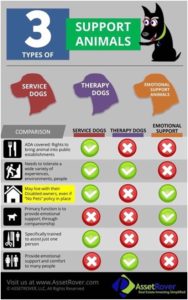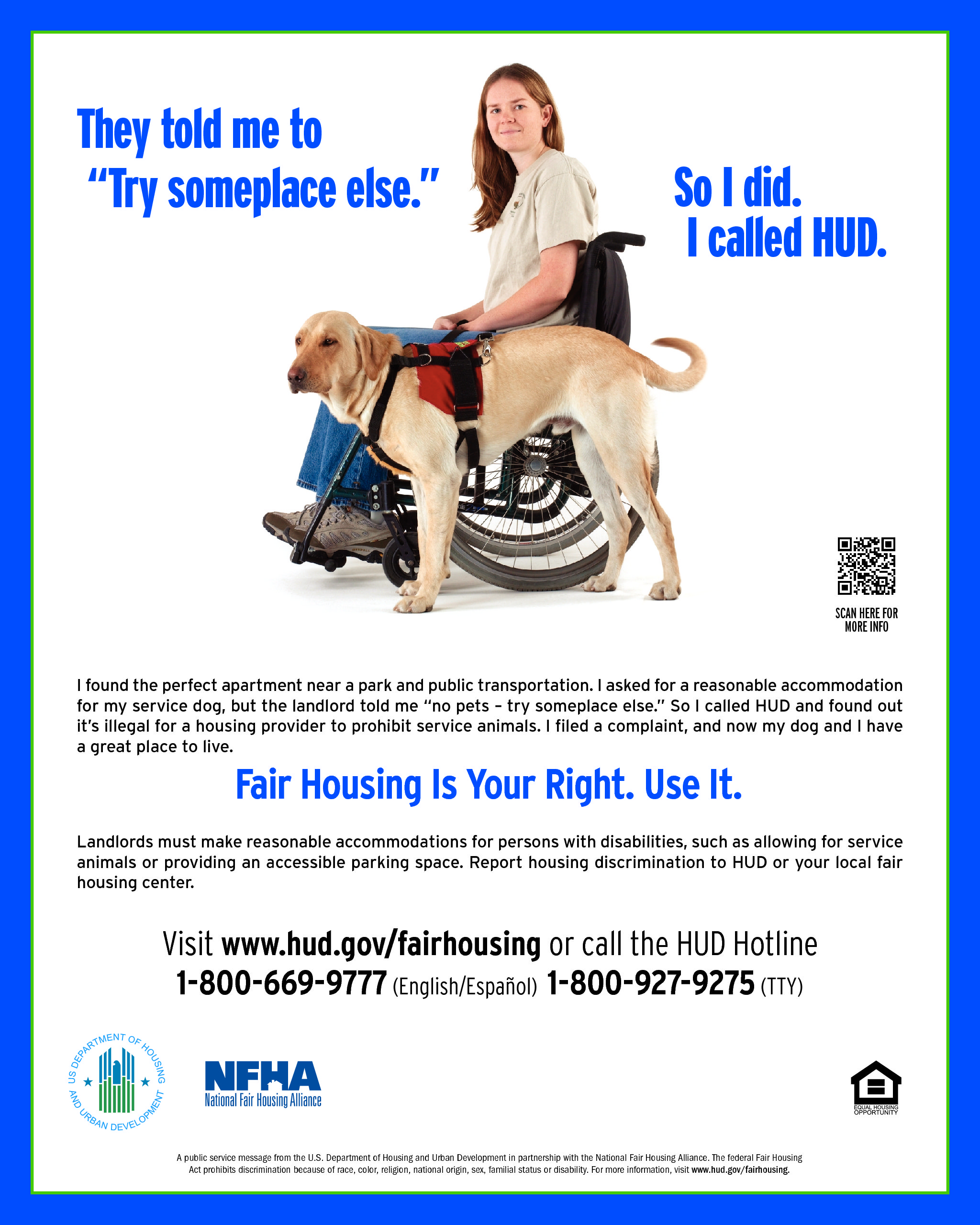There’s a lot of confusion about the Fair Housing Act. I get questions about this all the time. It can be complicated as the laws pertaining to service animals, emotional support animals, and therapy animals in the Housing Act are not the same as those for Public Access under the Americans with Disabilities Act (ADA).
First, a few definitions. Under the ADA a service animal is defined as a dog or miniature horse (under 100 pounds) that has been individually trained to do work or perform tasks for an individual with a disability. The task(s) performed by the service animal must be directly related to the person’s disability.
An emotional support animal (ESA) can be any animal that provides a benefit to a person with a documented disability. An emotional support animal is not considered a service animal. An ESA has privileges under the Fair Housing Act, but not under the ADA.
A therapy animal is a pet which may or may not have some obedience training and that is taken to facilities that request/allow its presence to provide brief visits with the people whom the facility serves.

Support Animal Comparison Chart
The Fair Housing Act is a federal law that applies to most housing providers. Under this Act landlords must allow service animals and emotional support animals, even if they have a no-pet policy.
Landlords cannot charge extra rent for tenants with disabilities who have one of these animals living with them. However, that does not mean that the tenant is not responsible for the behavior of their service animal or ESA. If the dog or other animal causes damage or disturbs other tenants with excessive barking or other bad behavior, the landlord may have cause to charge for damage or deal with the problem in other ways.
Therapy animals, being considered pets under the law, do not have to be allowed by landlords whose rentals have a no-pet policy.
According to HUD U.S. Department of Housing and Urban Development), there are some rules around documentation a housing provider can request:
A provider is entitled to obtain information that is necessary to evaluate if a requested reasonable accommodation may be necessary because of a disability. If a person’s disability is obvious, or otherwise known to the provider, and if the need for the requested accommodation is also readily apparent or known, then the provider may not request any additional information. If the disability and/or the disability-related reason for the requested accommodation is not known or obvious, the requesting individual, medical professional, a peer support group, a non-medical service agency, or a reliable third party who is in a position to know about the individual’s disability may also provide verification of a disability. In most cases, an individual’s medical records or detailed information about the nature of a person’s disability is not necessary for this inquiry.
HUD also offers this explanation of the purpose of the Fair Housing Act:
The Fair Housing Act’s protection against disability discrimination covers not only tenants and home seekers with disabilities but also buyers and renters without disabilities who live or are associated with individuals with disabilities. The Act also prohibits housing providers from refusing residency to persons with disabilities, or placing conditions on their residency, because they require reasonable accommodations. Since rules, policies, practices, and services may have a different effect on persons with disabilities than on others, treating persons with disabilities exactly the same as others will sometimes deny them an equal opportunity to use and enjoy a dwelling.
Laws about housing, service animals, and emotional support animals can be confusing. If you need help, you can contact HUD.
Visit www.hud.gov/fairhousing or call the HUD Hotline 1-800-669-9777 (English/Español) 1-800-927-9275 (TTY)
Other resources and background information:
The Fair Housing Act and Assistance Animals
http://www.humanesociety.org/animals/resources/tips/assistance-animals-tenants-rights.html
ADA Questions and Answers: U.S. Dept. of Justice Human Rights Division:
ada.gov/regs2010/service_animal_qa.html
Service Animals and Emotional Support Animals: Where are they allowed and under what
conditions? / ADA National Network:
https://adata.org/publication/service-animals-booklet






